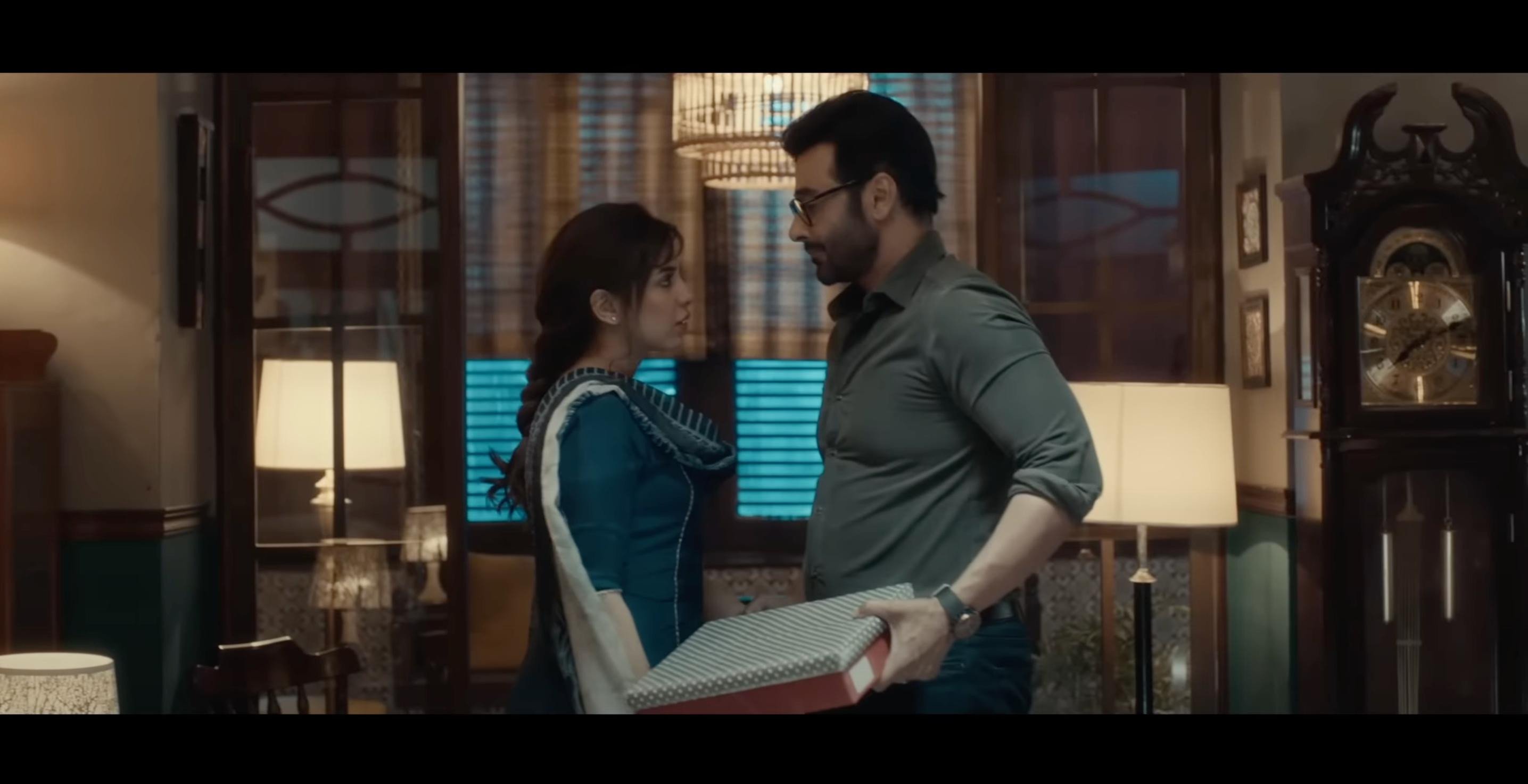Deemak, the latest psychological horror film to emerge from Pakistani cinema, creeps under your skin not with loud jump scares, but with a slow, suffocating sense of dread. Directed by Rafay Rashdi and inspired by horror writer Ayesha Muzaffar — known for her Instagram page Abusjinns and the book Jinnistan — the film draws from South Asian folklore to tell a story that’s as much about emotional rot as it is about the supernatural.
Set in a large, aging house in Balochistan, the film unravels through eerie silences and subtle disturbances: levitating beds, whispering corridors, and a constant, ominous drip from the bathroom tap. But beyond these ghostly tricks lies a more grounded horror — the decay of familial relationships.

At the core of Deemak is a complex web of unresolved trauma. Faysal Quraishi plays Faraz, a husband caught between his new life with wife Hiba (Sonya Hussyn) and the shadow of his paralyzed mother, Dado (Samina Peerzada). The power dynamic between daughter-in-law and mother-in-law becomes the film’s emotional battleground, one that’s intensified when the home nurse abruptly disappears after witnessing inexplicable phenomena.
The performances are powerfully restrained. Peerzada, though mostly bedridden, brings chilling weight with just her eyes and facial movements. Hussyn delivers a nuanced portrayal of a woman overwhelmed by domestic pressures and unspoken fears. Quraishi holds it all together with a quietly imploding performance, while Bushra Ansari’s brief late appearance adds gravitas.

Children Rafay and Rumaisa are the first to sense something is amiss, but their concerns, as in many horror stories, are dismissed until it’s too late. This tension builds slowly but persistently, echoing the termite metaphor that runs through the film — destruction that begins from within.
Technically, Deemak is one of the more polished entries in Pakistani horror. The CGI, produced with a Canadian team, avoids overkill, and the real horror emerges from the house’s atmosphere: creaking wood, flickering lights, and ghostly murmurs. Sound design is a standout — subtle enough to create unease without overwhelming the narrative.

But where Deemak truly excels is in how it uses horror to explore deeper themes — abuse, neglect, resentment, and denial. The haunting isn’t just paranormal; it’s emotional. It lives in the house’s walls, in silences between characters, in histories that are never fully spoken.
Pakistani horror has seen scattered attempts over the years — from the cult slasher Zibahkhana to the experimental In Flames — but Deemak offers something more mature. It respects its genre while grounding it in psychological realism.
In the end, Deemak leaves us not screaming, but thinking. It’s a reminder that real horrors don’t always knock loudly — sometimes, they quietly eat away at the foundations we ignore.






